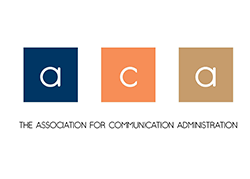Abstract
This article aims to reexamine the principles of professional responsibility developed by organizations such as the National Association of Schools Theatre, the National Endowment for the Arts and others, and to reconsider them in relation to specific pressing contemporary moral issues. Theatre practitioners who attempt to lead moral lives have always been concerned with ethics. Throughout Stanislavski's books and notes, for example, is the sense that the question of ethics occupied him throughout his professional life. In fact, he was so strongly committed to the highest ethical values that he endorsed the use of autocratic discipline to achieve his goals. The sense of a play embodying an ethic or a morality is what many feel distinguishes drama as an art. Yet currently theatre education is in serious danger of forfeiting the moral authority claimed for it chiefly because of the uncontrolled pursuit of self-interest which is rampant in theatre programs. Increasing pressures for theatre programs to defend their self-interests have made the study of ethics important in a new way. Such an important undertaking, however, should not be attempted in a void. Seriously examining ethical principles in theatre education also requires an understanding of the basic principles of professional ethics in general. Conflicts about moral questions involved in professional decisions generally boil down to basic ethical concepts. These are the concepts that occupy the attention of ethics thinkers and they are as fundamental to ethics as Aristotle's concepts are to drama: they are the basic building blocks. In Ethics and the Professions, Applebaum and Verone list the basic ethical concepts as autonomy, doing good and avoiding harm, protectivism and rights. The most basic is autonomy, or what we would call freedom of the individual, which is the subject of this paper.
Recommended Citation
Thomas, J. (1993). Empowering the individual: The concept of individual freedom in theatre education. Journal of the Association for Communication Administration, 22(2), 29–34.


